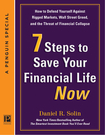
Alyce Laviolette is a well-known advocate for victims of domestic violence. She recently gained national prominence as an expert who testified that Jodi Arias was a victim of domestic violence. For those of you who are not familiar with Jodi Arias, she is on trial for the brutal killing of her former boyfriend, Travis Alexander. The trial has become a national obsession and is televised live on HLN.
Ms. Arias no longer denies that she killed Mr. Alexander, although she previously lied about the tragic events relating to his death. She now claims she was a victim of domestic violence and was acting in self-defense after allegedly being attacked by him. Her version of these events is contradicted by a wealth of evidence, making her story very tenuous at best. Her allegations of domestic violence are supported largely by her self-reporting. There is no corroborative evidence of her claims of physical attacks by Mr. Alexander, although there is support for her assertion that he was emotionally abusive at times.
Ms. Laviolette was retained by the defense team representing Ms. Arias and paid with public funds. She testified extensively in support of Ms. Arias, confirming her version of events and concluding Ms. Arias was indeed a domestic violence victim. In a scathing cross-examination, Ms. Laviolette fared poorly. She appeared less of an expert than an advocate, with a pronounced bias in favor of Ms. Arias. She was forced to concede she based her opinion, to a significant extent, on her interviews with Ms. Arias, even though Ms. Arias had a demonstrated history of lying. She appeared incapable of answering a direct question directly and sparred unnecessarily with the prosecutor. Overall, her effectiveness as a defense witness was widely panned in the social media.
What does this testimony have to do with investing? Are you familiar with the expression: "To a hammer, everything looks like a nail"? Ms. Laviolette appeared to be a heat-seeking missile in search of domestic abuse. She found its existence in the most unlikely places and stretched the facts to fit into her definition of domestic abuse. Her testimony demonstrated "confirmation bias," which is defined as a tendency to find information that supports a preconceived bias, rather than objectively considering information that contradicts that bias.
Confirmation bias is a very common trait with investors. Current examples include gold and Apple stock. Many investors were (and are) of the view that overweighting their portfolios in gold is prudent, given their perception of uncertainty in world markets. Those investors ignored red flags about the soaring price of gold and were caught in the recent downturn.
Apple stock has seen a dramatic drop in its share price. Investors who believe Apple is "doomed" will find many reasons to sell or short this stock. Those who believe Apple is undervalued will find equally compelling reasons to buy the stock.
As an investor, you need to be aware of confirmation bias. Your investing decisions should be based on a dispassionate review of objective facts. To be sure you are getting all sides of the story, seek out opposing views and broaden your inquiry before making any investment decision. For more information about dealing with confirmation bias, I recommend a book authored by Michael J. Mauboussin: Think Twice: Harnessing the Power of Counterintuition.
I believe Ms. Laviolette failed as an expert witness because of her confirmation bias, which seemed apparent to the jury. You should not fail as an investor for the same reason.

